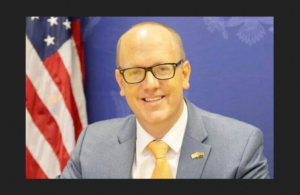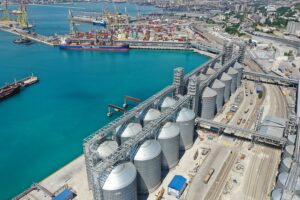The Federal Ministry of Power with the financial support of the European Union (EU) and the German Federal Ministry for Economic Cooperation and Development (BMZ) has put in motion, modalities to improve Nigeria’s erratic power supply.
To this end, the Nigerian Energy Support Programme (NESP) on Tuesday in Abuja hosted the first-ever Premium Grids Conference, which attracted many participants and stakeholders from the power sector.
The Premium Grid model, developed by NESP combines franchising projects and embedded generation in ring-fenced areas for supplying reliable 24/7 electricity to customers.
According the organisers of the conference “This concept has several benefits not only for end-users but for Nigerian Electricity Distribution Companies (DisCos). Power Generation Companies (GENCOs), Private Developers and Nigeria at large”.
Speaking at the conference, the Minister of State for Power, Mr. Goddy Jedy Agba commended the EU and German Government for their continuous support to the Ministry toward its mandate of ensuring energy security in the most affordable and sustainable manner.
The Minister also underlined the importance of the Premium Grid concept as a welcome idea to “provide reliable electricity access in urban residential and industrial clusters in Nigeria, adding that, it will attract more investments into the Renewable Energy Sector and support towards achieving the Energy Transition Plan for the country.
Also speaking at the conference, Cecile TASSIN-PELZER, Head of Cooperation at the European Union Delegation to Nigeria and ECOWAS, said the fight for achieving a cleaner future is for everyone.
“The EU continues to support the Nigerian government to not only achieve its energy security plans but to achieve a sustainable energy future through the increase of renewables in its electricity mix. We are happy to have supported the development of Premium Grids as an innovative model bringing a new landscape to the concept of electricity franchising, attracting renewable energy investments and ensuring reliable power supply to its beneficiaries”, she said.
In a goodwill message, Mr. Martin HUTH, Deputy Ambassador of the German Embassy to Nigeria, reaffirmed the support of the German Government to the Nigerian Government in achieving its energy goals.
He said, “The promotion of renewable energy technologies and Investments such as the Premium Grid model will support the diversification of Nigeria’s energy mix. This will support the Nigerian government in achieving universal energy access, in improving energy security, and in achieving the targets outlined in the Nigerian energy transition, which are key focus areas that the German Government will continue to provide support to the Federal Government of Nigeria on.”
According to him, so far, NESP has supported three DisCos, incuding the Abuja Electricity Distribution Company, Kaduna Electricity Distribution Company, and Kano Electricity Distribution Company, in piloting the development phase of Premium Grid projects.
The Head of Programme NESP, Mr. Duke BENJAMIN, noted that “active participation of and collaboration with the DisCos and other key stakeholders is critical to improve availability and reliability of electricity in Nigeria.
“This conference offered participants-power distribution and generation companies, private investment firms, ministries, regulatory agencies, financial institutions, and related stakeholders – a unique opportunity to learn from the ongoing development of Premium Grids, bridging the gap between public and private stakeholders, and ultimately enable participants address major challenges in its design and implementation”, he added.
The keynote address titled “Successful Distribution Concessional Models and Challenges was delivered by Ignacio Perez Arriaga, Interim Director, Africa School of Regulation.
NESP is a technical assistance programme co-funded by the EU and the BMZ and implemented by the Deutsche Gesellschaft für Internationale Zusammenarbeit (GIZ) GmbH in collaboration with the FMP. It aims to foster investments for Renewable Energy and Energy Efficiency and to improve access to electricity for disadvantaged, rural communities.




